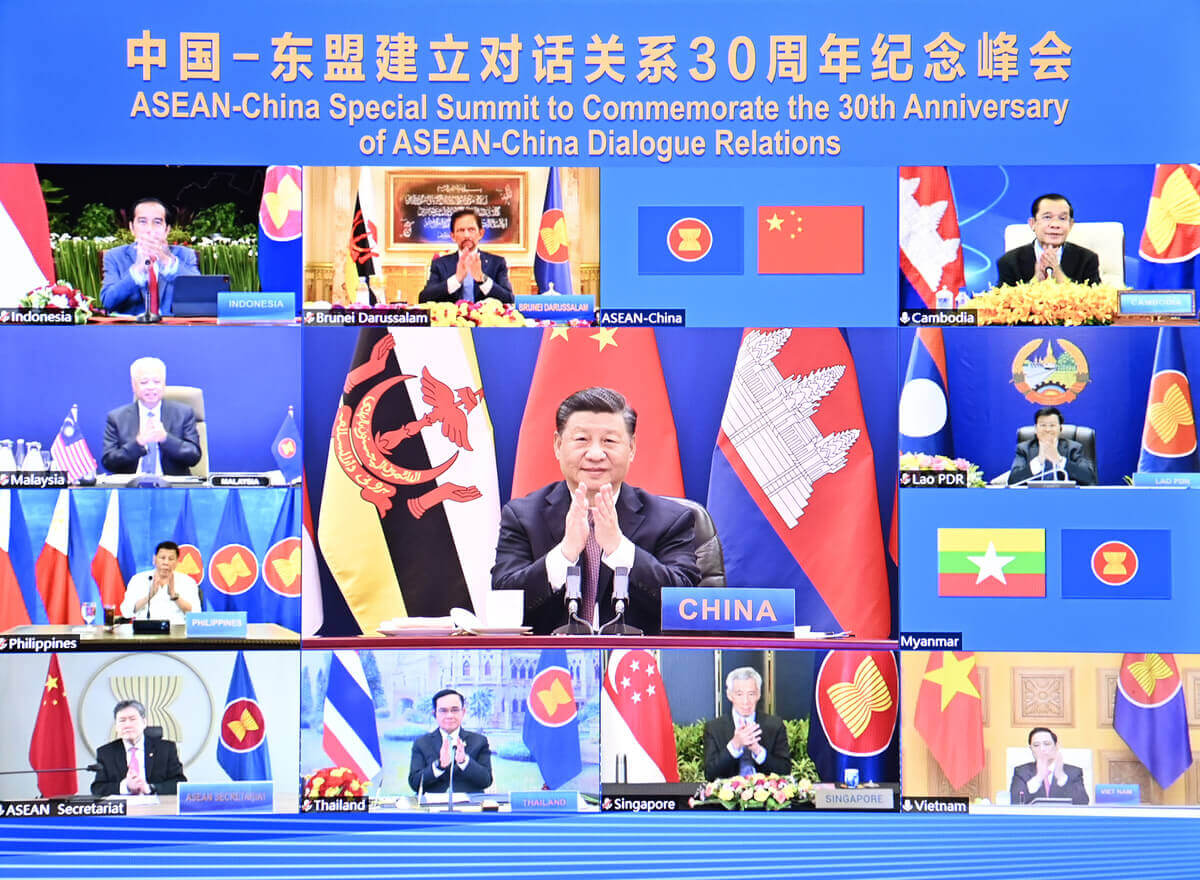During China’s summit with the Association of Southeast Asian Nations (ASEAN) on Monday, Chinese President Xi Jinping told leaders of the regional organisation that his country will not “bully” its smaller neighbours.
Xi was chairing the ASEAN-China Special Summit from Beijing, which was held to commemorate the 30th Anniversary of ASEAN-China Dialogue Relations. His comment referred to rising tensions in the South China Sea, where China’s aggressive behaviour has prompted littoral states to lodge protests on several occasions.
“China was, is, and will always be a good neighbour, good friend, and good partner of ASEAN,” Xi was quoted saying. He added that China would “never seek hegemony” nor “take advantage of its size to coerce smaller countries,” and would work with ASEAN to eliminate “interference.”
Xi went on to stress the importance of pursuing “common, comprehensive, cooperative and sustainable security” goals by deepening cooperation in areas such as “defence, counterterrorism, joint maritime search, rescue and exercise, countering transnational crime, and disaster management.”
“Joint efforts are needed to safeguard stability in the South China Sea and make it a sea of peace, friendship and cooperation,” he said in his speech titled “For a Shared Future and Our Common Home.”
In the joint statement released after the summit, China and ASEAN pledged to “exercise self-restraint” while conducting activities in the South China Sea that could “complicate or escalate disputes and affect peace and stability,” and to “resolve territorial and jurisdictional disputes by peaceful means,” in accordance with “recognised principles of international law.”
China’s assertion of sovereignty over the South China Sea has pitted it against many ASEAN member countries such as Vietnam, the Philippines, Brunei, Taiwan, and Malaysia.
Only last Thursday, the Philippines condemned the actions of three Chinese coast guard vessels, which it accused of blocking and using water cannons on resupply boats headed towards a Philippine-occupied atoll in the volatile region. “This does not speak well of the relations between our nations,” Philippines President Rodrigo Duterte had said.
Moreover, Xi promised that China will aim to import high-quality agricultural products, worth $150 billion over the next 5 years from ASEAN countries. Xi also promised that Beijing will donate $5 million to the COVID-19 ASEAN Response Fund, step up joint vaccine production, and collaborate on research and development of essential medicines.
Only this year, China expressed its willingness to upgrade its relationship with the Asian multilateral organisation. While meeting with ASEAN foreign ministers (FMs) at a Special ASEAN-China FM Meeting in June, Chinese State Councilor and FM Wang Yi said that the two sides should “explore ways to elevate China-ASEAN relations to a comprehensive strategic partnership.”
This vision materialised in October under the leadership of ASEAN’s current chair, Brunei, which agreed to forge a comprehensive strategic partnership with China. According to analysts, their upgraded relations would entail more meaningful cooperation at multiple levels across many fields such as “trade and investment, connectivity, people-to-people exchanges, culture and education, collaboration in science and technology, as well as traditional and non-traditional security issues including climate change, food security, and public health.”
ASEAN member countries include Brunei, Cambodia, Indonesia, Laos, Malaysia, Myanmar, the Philippines, Singapore, Thailand, and Vietnam. ASEAN established dialogue relations with Beijing in 1991. However, in a clear snub of the junta government in the country, representation from Myanmar was absent from the latest ASEAN meeting.

